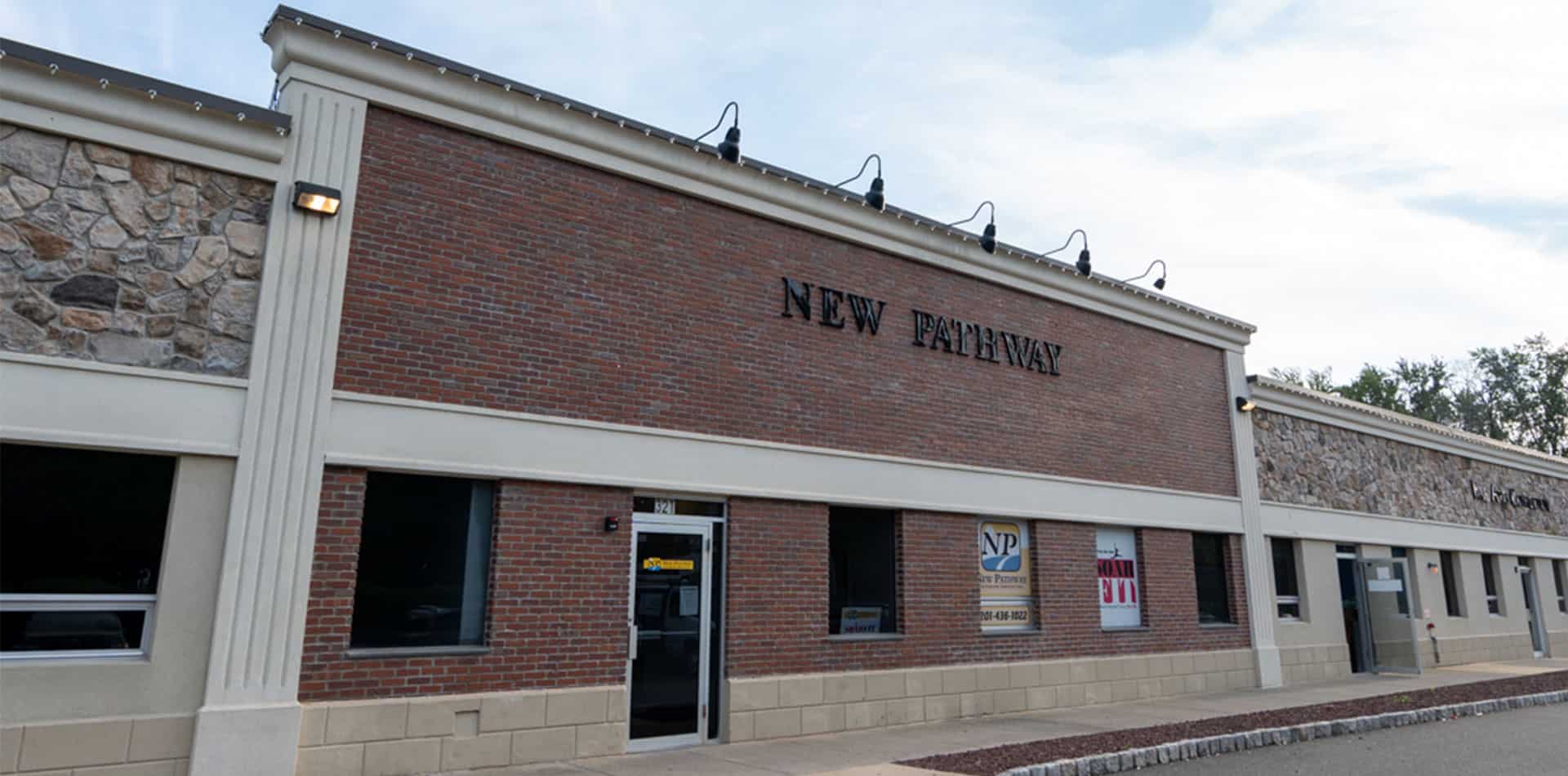Teen & Adolescent Trauma & PTSD Treatment
What you will learn:
- Symptoms of PTSD in teens and the importance of recognizing them.
- Guardian Recovery’s evidence-based therapies to address trauma and co-occurring disorders.
- The connection between trauma/PTSD and substance use.
We Specialize In Adolescent Treatment
"*" indicates required fields
By selecting this checkbox and entering mobile number I agree to receive GR Support from Guardian Recovery Network Holdings LLC. Message frequency varies. Text HELP to 96909 for help, Text STOP to 96909 to end. Msg&Data Rates May Apply. By opting in, I authorize Guardian Recovery Network Holdings LLC. to deliver SMS messages using an automatic dialing system and I understand that I am not required to opt in as a condition of purchasing any property, goods, or services. By leaving this box unchecked you will not be opted in for SMS messages at this time. Click to read Terms and Conditions & Privacy Policy.
Parenting is tough enough, but when your child is dealing with trauma and/or post-traumatic stress disorder (PTSD), it can send your world into a tailspin. Along with stress and anxiety, you’re likely to feel hopeless, isolated, and uncertain of how to deal with the situation.
However, understanding that you’re not alone and learning more about trauma and PTSD can help alleviate some of these emotions. Plus, the added insight can help you find the necessary care your teen needs to regain their mental health and well-being.
If your teen is struggling with trauma or PTSD, Guardian Recovery can help. We specialize in adolescent mental health and behavioral care. Plus, our team of compassionate professionals can provide the guidance your teen needs, offering a variety of evidence-based treatments tailored to their specific needs. Reach out to Guardian Recovery today to learn more about our adolescent treatment programs. Transformation is within reach. Guardian Recovery can help.
What is PTSD in Teens?
PTSD is a mental health condition that sometimes develops when an individual experiences or witnesses something severely shocking, scary, or dangerous. These traumatic events can include everything from abuse, car accidents, and natural disasters to bullying, the death of a loved one, and serious illness.1
Some specific symptoms of PTSD in teens include:2,3
- Frequent nightmares or flashbacks
- Avoiding people, places, or activities that remind them of the trauma
- Feeling numb or disconnected from reality
- Sudden bursts of irritability or aggression
- Difficulty concentrating or staying focused
- Overwhelming feelings of guilt or shame
- Trouble sleeping or staying asleep
- Substance use
Anyone can develop PTSD at any age. And not everyone with PTSD has actually been through a serious event. Sometimes, simply learning that a family member or friend experienced trauma can lead to PTSD in teens.1
Get Local Help
Questions?
Learn More About the Recovery Process
- Our Approach
- The Treatment Process
- Frequently Asked Questions
- Insurance Check
- Ask a Question
Post-Traumatic Stress Disorder & Mental Health Disorders
PTSD in teens often goes unnoticed, as many symptoms can be mistaken for typical adolescent behavior. However, if your teen has gone through or witnessed a traumatic event and you notice a sudden change in their mood, sleeping patterns, or ability to cope with everyday stress, they may be struggling with PTSD. As a parent, you also might observe that they seem withdrawn, easily startled, or unusually angry. These can be important signs to watch for.3
However, along with the aforementioned symptoms, teens may also turn to substance use to cope with trauma. In fact, according to the Substance Abuse and Mental Health Services Administration, substance use is often initiated or increased after trauma.3
Research shows that individuals facing severe, mild, or even subtle mental health challenges often seek refuge in drugs and alcohol, mistakenly believing these substances will provide relief. While teens may experience a momentary escape from their symptoms, these substances can exacerbate their struggles, deepening the very issues they hoped to alleviate—both immediately and in the long run.2
Simply put, behavioral issues, mental and emotional concerns, and substance use often go hand in hand. So if your teen is experiencing one, they may be experiencing the others.
Your Teen's Transformation Starts
Here
Guardian Recovery Adolescent can help your teen take control of their lives, putting them on a path to a brighter future filled with possibility.
Importance of Recognizing Signs & Trauma Symptoms in Adolescents
If you suspect your teen has been exposed to trauma or is dealing with PTSD, it’s important to get a thorough evaluation, particularly because PTSD can often be misdiagnosed as ADHD or anxiety. In fact, trauma symptoms—like difficulty concentrating, restlessness, or irritability—can look a lot like ADHD. Similarly, the constant worry and fear caused by trauma can mimic anxiety. Without the right diagnosis, teens may not receive the most effective treatment, leaving them to continue struggling with unresolved trauma.
If you suspect that trauma may be at the root of your teen’s behaviors—or even if you’re not sure exactly what is going on—reach out now to speak with a treatment advisor. Along with answering your questions and discussing treatment options, staff can provide an initial assessment to help you begin to identify your child’s needs and whether treatment would be beneficial. The call is free and confidential, and you’re under no obligation to enter care with us.
Causes of Trauma in Adolescents
There are many causes of teen trauma, and understanding what can lead to trauma is important for getting the right help. Research shows that trauma can stem from various life events that are deeply distressing or harmful. The American Psychiatric Association outlines some common causes of trauma in adolescents:4
- Abuse or neglect: Physical, emotional, or sexual abuse can leave lasting emotional scars.
- Witnessing violence: Seeing or being around violent events, such as domestic or community violence, can cause trauma.
- Bullying: Consistent bullying, especially in school or online, can be a significant source of trauma for teens.
- Accidents or natural disasters: Surviving a car accident, house fire, flood, or other natural disaster can trigger trauma symptoms.
- Death of a loved one: The sudden loss of a parent, sibling, or close friend can be especially traumatic during adolescence.
- Severe illness or injury: Being diagnosed with a life-threatening illness or experiencing a serious injury—or witnessing friends of loved ones go through this experience—can lead to emotional trauma.
Keep in mind, however, that there’s “Big T” trauma and “little t” trauma. Big T trauma refers to major life events like war, abuse, natural disasters, and acts of terrorism. These events are recognized as traumatic because of their severe and overwhelming nature.
On the other hand, “little t” trauma may seem less significant but can still deeply affect a teen. These experiences can include things like having a parent continually criticize them, being rejected by a love interest, or feeling ignored by a close friend.
The problem with these seemingly “lesser” traumas is that teens often feel ashamed for having a strong emotional reaction to these events, believing—or even being told—they should just get over it. However, it’s important to recognize that both types of trauma are valid and can have a lasting impact on a teen’s emotional well-being.
Potential Consequences of Untreated Trauma in Teens
When trauma in teens is left untreated, it can lead to a ripple effect of mental, emotional, and physical challenges. Teens may struggle with feelings of deep sadness, anger, or isolation, which can influence their ability to form healthy relationships and succeed in school. Trauma can also manifest in risky behaviors like substance use, self-harm, or sudden aggression as teens search for ways to cope with overwhelming emotions.
Research shows that unresolved trauma can significantly increase the risk of substance misuse in adolescents. When teens experience trauma and do not receive proper support or treatment, they may turn to drugs or alcohol as a way to cope with their emotional pain. This is often a way to numb their feelings or escape from the distress associated with their traumatic experiences. Studies have found that individuals with a history of trauma are more likely to develop substance use disorders, highlighting the importance of addressing trauma to prevent future substance misuse.2
Long-term, untreated trauma can increase the likelihood of developing more severe mental health disorders, such as depression, anxiety, or PTSD. Additionally, it can impair their ability to navigate stress, leading to lifelong difficulties in emotional regulation and problem-solving.5
If you’re uncertain about what’s going on with your teen, a thorough assessment from Guardian Recovery can help you determine the best path forward.
Complimentary Insurance Check
Find Out Today!
"*" indicates required fields
Does your insurance cover mental health?

Our Locations
Our Facilities & Teams Transform Lives
Changing lives by providing comprehensive support and rehabilitation, empowering individuals to overcome addiction and regain control of their health and well-being.
Diagnosis & Treatment of Adolescent PTSD
To diagnose PTSD in adolescents, Guardian Recovery first offers an initial assessment via phone. However, once your teen enters care, one of our licensed professionals with direct experience in adolescent care provides a comprehensive assessment that evaluates your teen’s health in terms of physical, emotional, social, academic, behavioral, and mental health factors. We employ structured interviews and questionnaires that gather information about your teen’s experiences, thoughts, and behaviors. We then structure a treatment plan around your teen’s unique needs.
Parents can play a vital role in this process by providing insights into any changes they’ve observed, as well as discussing the teen’s history and any symptoms that may have surfaced after a traumatic event. Research shows that accurate diagnosis is crucial, as many PTSD symptoms can overlap with other mental health conditions, such as anxiety and ADHD, potentially leading to a misdiagnosis if not thoroughly evaluated.
Since Guardian Recovery offers a full continuum of care, we can meet your teen wherever they are in their mental health and behavioral health journey. Our levels of care include:
Trauma-Focused Evidence-Based Treatment Therapies
When it comes to helping adolescents recover from trauma and PTSD, Guardian Recovery employs a holistic approach. That is, we don’t just treat the symptoms of behavioral concerns. Rather, we empower teens and families to identify and address the underlying causes of these issues.
Plus, when mental health and substance use disorders occur concurrently, the condition is called a dual diagnosis or co-occurring disorder. Guardian Recovery specializes in dual-diagnosis care, a gold standard of care that treats both conditions concurrently.
Along with individual, group, and family therapy—as well as a robust academic program for adolescents in our inpatient and PHP with housing options— we employ the following evidence-based therapeutic modalities.
- Cognitive-Behavioral Therapy (CBT)—CBT is a structured psychotherapy that focuses on identifying and changing negative thought patterns and behaviors that contribute to emotional distress. By helping teens develop healthier thinking and coping strategies, our CBT aims to improve mental health outcomes and enhance overall well-being.
- Dialectical Behavioral Therapy (DBT)—DBT is a form of CBT specifically designed to help teens with intense emotional-regulation issues. It combines individual therapy with group skills training, focusing on mindfulness, distress tolerance, emotional regulation, and interpersonal effectiveness to promote healthier coping mechanisms and improve relationships.
- Motivational Interviewing (MI)—Our therapists employ MI to help clients address their ambivalence to change. As a result, teens can better access the internal motivation necessary to make lifestyle and behavioral changes.
- Trauma-Focused Cognitive Behavioral Therapy (TF-CBT)—This therapy combines traditional cognitive-behavioral techniques with trauma-sensitive interventions. It helps teens understand and manage their trauma-related thoughts and feelings while developing coping skills. Research shows that TF-CBT significantly reduces PTSD symptoms and improves emotional regulation in adolescents.
- Eye Movement Desensitization and Reprocessing (EMDR)—EMDR focuses on processing traumatic memories through guided eye movements. It allows adolescents to reprocess their trauma in a safe environment, leading to a decrease in distressing symptoms. Research has shown that EMDR is effective for children and adolescents dealing with trauma.
- Cognitive Processing Therapy (CPT)—CPT is a cognitive-behavioral approach that helps teens challenge and modify unhelpful beliefs related to their trauma. By addressing distorted thinking, CPT can alleviate symptoms of PTSD and promote healthier coping mechanisms. Research supports its effectiveness in reducing PTSD symptoms in adolescents.
- Narrative Exposure Therapy (NET)—NET involves creating a narrative of the traumatic experience, allowing teens to express and process their emotions in a structured way. This therapy is particularly useful for those who have experienced multiple traumas, as it helps them organize their memories and find meaning in their experiences.
- Family Therapy—Involving family members in therapy can strengthen support systems and improve communication. Family therapy addresses how trauma affects family dynamics and helps improve relationships, providing a safe space for discussing emotions and experiences.
Supporting Your Teen Through Trauma Treatment
Supporting your teen during their treatment journey is important for their recovery and healing. As a parent or caregiver, your involvement can make a significant difference in how your child copes with their experiences. Here are some key ways to provide support.
- Maintain Open Communication—Encourage your teen to share their feelings and thoughts about their trauma and treatment. Create a safe space where they feel comfortable expressing themselves without judgment. Listening actively and validating their feelings can help them feel understood and less isolated.
- Educate Yourself—Learning about trauma and PTSD can help you better understand what your teen is experiencing. Familiarize yourself with the symptoms, treatment options, and the effects of trauma on mental health. Knowledge can empower you to offer informed support.
- Be Client—Recovery from trauma can take time, and progress may not always be linear. Be client with your teen as they navigate their emotions and treatment. Remind them that healing is a journey, and it’s okay to have setbacks.
- Encourage Professional Help—Reinforce the importance of attending therapy sessions and following treatment plans. Encourage your teen to engage actively in therapy, as taking ownership of their recovery can foster a sense of empowerment.
- Promote Healthy Coping Strategies—Help your teen develop healthy coping mechanisms like journaling, mindfulness exercises, or engaging in creative activities like art or music. Encourage physical activities like sports or yoga, which can also be beneficial for mental health.
- Monitor Their Well-Being—Keep an eye on your teen’s emotional and physical health. Look for signs of distress, changes in behavior, or withdrawal from activities they once enjoyed. If you notice concerning changes, consider discussing them with their therapist.
- Foster a Supportive Environment—Create a nurturing and stable home environment. Establish routines that provide predictability and security, which can be comforting for a teen dealing with trauma.
- Seek Support for Yourself—Caring for a teen in treatment can be challenging. Don’t hesitate to seek support for yourself, whether through counseling, support groups, or trusted friends and family. Taking care of your mental health will enable you to support your teen better. Also, keep in mind that Guardian Recovery doesn’t just treat the teen; we treat the entire family. Along with providing ongoing communication, we offer parent family therapy, educational workshops, and parent support groups to enable entire families to grow and heal.
Ready to Change Your Teen’s Future?
Your Next Steps
Trauma-Informed Adolescent Care
Trauma-informed care recognizes how trauma can affect a young person’s mental, emotional, and physical health. It emphasizes creating a safe and supportive environment where adolescents feel secure and respected.
According to the Substance Abuse and Mental Health Services Administration (SAMHSA), this approach involves understanding the signs and symptoms of trauma, integrating this knowledge into practices, and ensuring that every interaction supports the healing process. For example, establishing a predictable routine and providing consistent support can help teens regain a sense of stability after experiencing trauma. Research has shown that feeling safe and supported in their environment can significantly improve a teen’s ability to cope with their experiences and engage in recovery.6
Building trust and empowering adolescents is also key in trauma-informed care. When teens are involved in decisions about their treatment, they feel more in control of their healing process, which is essential for recovery. In fact, a recent study found that adolescents who participated actively in their treatment were more likely to have positive outcomes.
At Guardian Recovery, we prioritize trauma-informed care to effectively support adolescents on their journey toward healing and resilience. Paired with our holistic approach, we enable teens and families to navigate the complexities of trauma and recovery.
Contact Us to Learn More About Addiction Recovery
Is your teen struggling with PTSD and/or substance misuse? Are they exhibiting problem behaviors such as emotional outbursts, isolation, irritability, and more?
You and your teen are not alone. At Guardian Recovery, we understand the challenges you’re facing and are committed to providing a safe and supportive treatment plan that provides whole-person healing. We work closely with parents and guardians not only to help teens overcome current obstacles but also to empower them to develop the skills necessary to thrive well into the future.
Ready to take the next step?
Our admissions process is simple and straightforward. Reach out to our experienced advisors, who can answer your questions, discuss treatment options, and verify your insurance. Additionally, staff can offer an initial assessment to determine if treatment might be beneficial and if so, which level of care is most suited for your teen. The call is free and confidential, and you’re under no obligation to enter treatment with us.
Healing is possible. We can help.
FAQs
Signs of PTSD in teens can include frequent nightmares, flashbacks, withdrawal from friends or activities, changes in mood or behavior, and difficulty concentrating. If you notice significant changes in your teen’s behavior after a traumatic event, it may be a sign they are struggling with PTSD.
Trauma-informed care is an approach that recognizes the prevalence of trauma and its impact on individuals. It prioritizes safety, trustworthiness, and empowerment in treatment settings, which can help teens feel secure and supported during their recovery journey.
Guardian Recovery specializes in providing tailored treatment programs for adolescents facing trauma/PTSD and substance use issues. Our compassionate team offers comprehensive assessments, evidence-based therapies, and a supportive environment to help your teen navigate their healing process effectively.
Our adolescent program offers the full continuum of care, from medical detox and residential/inpatient care to our partial hospitalization program (PHP) with or without housing, our intensive outpatient program (IOP), and outpatient and aftercare options. Since treatment isn’t a one-size-fits-all solution, your teen may progress from the most intensive form of care to the least intensive in a linear fashion—or they may skip some steps or even start right in the middle. No matter what level of behavioral care your teen needs, we meet you where you are.
Absolutely. We believe family involvement is crucial for successful recovery. We encourage family therapy sessions and provide resources for families to understand addiction and mental health and to support their loved one during treatment. Along with ongoing communication and family therapy, we provide educational workshops and parent support groups.
Our comprehensive assessment process is designed to determine the most appropriate treatment path based on individual needs and circumstances. So the best way to gauge what level of care might best fit your teen is to reach out to one of our treatment advisors. Along with answering your questions and discussing various care options, they can verify your insurance benefits and provide an initial assessment for your teen. Based on your answers, we can suggest an appropriate starting point. Once your teen enters care, staff will provide a comprehensive assessment regarding your child’s physical, emotional, social, behavioral, and academic needs. We’ll then tailor a treatment plan that addresses these needs and sets a course for growth and healing.
Your teen’s schooling and education are vital aspects of their development, and we understand the importance of continuity during their treatment. Our program prioritizes academic support, and we work closely with your teen’s school district to create a seamless transition into and out of our care.
We don’t just tackle behavioral and substance use issues. We nurture minds, rebuild confidence, and help your teen rediscover their potential in and out of the classroom. In effect, we strive to reignite your child’s passion for learning and set them up for long-term success.
Since each treatment program is customized to the unique needs of each teen in our care, no two care plans are alike. As such, costs vary dramatically. However, we accept most major insurance plans, and both mental health and substance use disorder care are typically covered by insurance. To know for sure how much you’ll pay and how much insurance will cover, reach out now for a free and confidential phone call. Our staff can answer your questions, discuss care options, verify insurance benefits, and discuss alternative payment options if necessary.
Getting started is as simple as making a phone call. Contact us now for a free, confidential, and no-obligation call to discuss treatment options, insurance benefits, and more. If you choose to proceed, we’ll provide an initial assessment and treatment plan, and we’ll offer explicit directions for check-in and next steps.
Sources
- National Institute of Mental Health. (n.d.) Post-Traumatic Stress Disorder.
- National Institute on Drug Abuse. (2018). Common Comorbidities with Substance Use Disorders Research Report. Part 1: The Connection Between Substance Use Disorders and Mental Illness.
- Center for Substance Abuse Treatment (US). Trauma-Informed Care in Behavioral Health Services. Rockville (MD): Substance Abuse and Mental Health Services Administration (US); 2014. (Treatment Improvement Protocol (TIP) Series, No. 57.) Chapter 3, Understanding the Impact of Trauma.
- American Psychiatric Association. (2022). What is Posttraumatic Stress Disorder (PTSD)?
- Substance Abuse and Mental health Services Administration. (2023). Key Substance Use and Mental Health Indicators in the United States: Results from the 2023 National Survey on Drug Use and Health.
- Substance Abuse and Mental Health Services Administration. (2015). Trauma Informed Care in Behavioral Health Services. https://store.samhsa.gov/sites/default/files/sma15-4420.pdf
Reviewed professionally for accuracy by:

Ryan Soave
L.M.H.C.
Ryan Soave brings deep experience as a Licensed Mental Health Counselor, certified trauma therapist, program developer, and research consultant for Huberman Lab at Stanford University Department of Neurobiology. Post-graduation from Wake Forest University, Ryan quickly discovered his acumen for the business world. After almost a decade of successful entrepreneurship and world traveling, he encountered a wave of personal and spiritual challenges; he felt a calling for something more. Ryan returned to school and completed his Master’s Degree in Mental Health Counseling. When he started working with those suffering from addiction and PTSD, he found his passion. He has never looked back.




